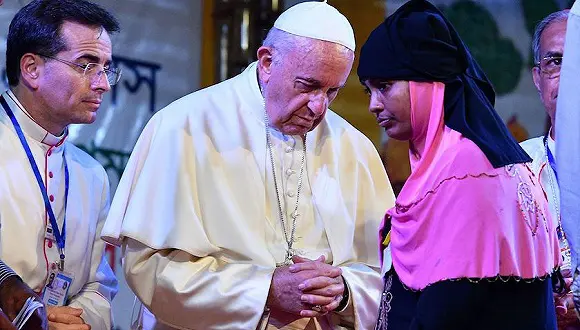U.S. Secretary of State Rex Tillerson's just-concluded tour to the Middle East aimed at containing the expansion of influence by its top adversary Iran, but with limited results.
Tillerson on Sunday visited Saudi Arabia, a sworn enemy of Iran, before flying to Doha with an aim to mediate a crisis between Qatar and the Saudi-led Arab quartet.
On Monday, he paid a surprise visit to Iraq in a bid to calm the rising tensions between the Iraqi government and the semi-autonomous Kurdistan Region, which is seeking independence.
Tillerson's trip reflected the adjustment of the U.S. policy priorities in the region at a time when the anti-terror war has achieved crucial victories and U.S. President Donald Trump decided to walk away from a landmark nuclear deal the previous administration signed with Iran.
U.S. alarmed by expansion of Iran's regional influence
The growing Iranian influence in the Middle East recently has apparently alarmed the Trump administration, which is poised to confront the Islamic republic with new sanctions.
Indeed, Iran has been flexing its muscles across the region, where new developments and conflicts have created new opportunities for the Islamic republic.
From the Gulf to the Mediterranean, Iran has been exerting its clout thanks to the conflicts and new crises in those nations.
In Syria, Iran has been assisting the government of President Bashar al-Assad, together with Russia, in fighting the Islamic State (IS) militants and rebel groups backed by the U.S.-led coalition.
Qatar has greatly improved its ties with Iran since June, as the gas-rich Gulf nation is facing a total blockade imposed by the Saudi Arabia-led quartet, which also includes Bahrain, the United Arab Emirates and Egypt.
In Iraq, which is also a Shiite-dominant country like Iran, Iranian-backed fighters have been helping Iraqi government forces defeat both IS militants and the Kurds seeking independence from Baghdad.
In Yemen, Iran has been supporting the Houthis in battling the government of Abd Rabbuh Mansur Hadi, who is supported by a coalition led by Saudi Arabia.
Despite a halt in its nuclear weapons program under the deal it signed with the U.S. and other major countries in 2015, Iran has been continuing its efforts to develop ballistic missiles. Iranian Navy has occasionally confronted the U.S. naval ships patrolling the Gulf, risking military conflicts.
The U.S. is also uneasy at the fast rapprochement between Iran and Turkey, a U.S. ally whose ties with Washington have worsened recently over a series of disputes.
Turkish President Recep Tayyip Erdogan paid a rare visit to Iran in early October, to boost Turkey's political and military ties with Tehran to coordinate the stances on curbing the Kurdish independence movement in Iraq and settling the Syria conflict.
Barriers stand in U.S. way to confront Iran
During his visit to Saudi Arabia, a Sunni-dominant state that has been a staunch U.S. ally, Tillerson witnessed the establishment of the Saudi-Iraq Coordination Council, which aims to coordinate their fight against IS and rebuild Iraq.
The major goal for the U.S. in brokering closer ties between Riyadh and Baghdad is to prevent Iraq from being dragged away by Iran, which has been assisting the Iraqi government in defeating IS and confronting the Kurdish independence.
Tillerson hailed the council as one of the ways "to counter some of the unproductive influences of Iran" inside Iraq, but suspicion remains between the two countries due to their decades-long estrangement and religious differences.
In both Riyadh and Doha, Tillerson called for dialogue to resolve the standoff between the Saudi-led bloc and Qatar, but once again he hit a stone wall.
Despite the U.S. pressure, Qatar is not willing now to take steps to damage its growing ties with Iran. The U.S. failure to broker a dialogue to end the standoff makes it more unlikely.
In August, Qatar, which severed diplomatic ties with Iran to show solidarity with Saudi in 2016, decided to restore its ties with Iran. Noticeably, Iranian Foreign Minister Mohammad Javad Zarif visited Doha in early October to discuss increasing cooperation with Qatar in various fields.
Even the Iraqi government, which relies heavily on the U.S. for protecting its security, has distanced itself from Washington when it comes to its ties with Iran.
Speaking in Riyadh on Sunday, Tillerson publicly demanded the pro-Iran Shiite fighters in Iraq, or Popular Mobilization Forces (Hashd al-Shaabi), "go home" as the fight against IS is ending.
But he ignored the pro-Iran force's key role in helping the Iraqi government not only in defeating the IS militants, but also in retaking the oil-rich Kirkuk province and other disputed areas from Kurdish forces recently.
Not surprisingly, Tillerson received a slap in the face by the Iraqi government, which swiftly rejected his demand, citing that the Hashd al-Shaabi fighters are fully Iraqi.
Iraqi Prime Minister Haider al-Abadi told Tillerson straight to his face when they met in Baghdad Monday that the Hashd al-Shaabi fighters are Iraqi who have fought terrorism, defended their country and made sacrifices to defeat IS.
"Nobody has the right to interfere in Iraqi affairs," the Iraqi prime minister's office said earlier in a sternly-worded statement in response to Tillerson's remarks.
(ASIA PACIFIC DAILY)
 简体中文
简体中文

